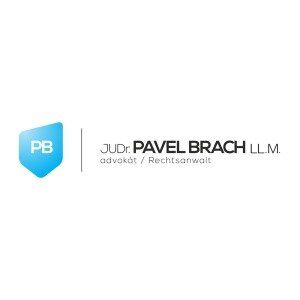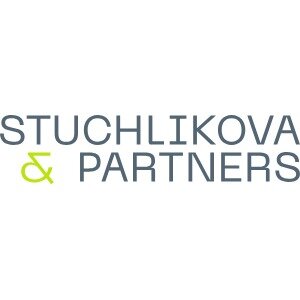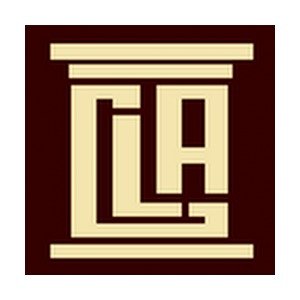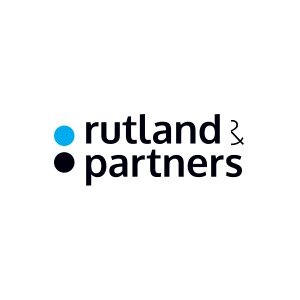Best Licensing Lawyers in Czechia
Share your needs with us, get contacted by law firms.
Free. Takes 2 min.
Or refine your search by selecting a city:
List of the best lawyers in Czechia
About Licensing Law in Czechia
Licensing in Czechia is an essential area of law that governs the permissions and rights granted for the use of intellectual property, technology, products, and various forms of creative work. It serves as a framework for businesses and individuals to legally share and distribute their creations and innovations. Licensing agreements are vital in protecting the interests of creators while allowing others to benefit from the use of the licensed material. This legal field covers various types of licenses, including trademarks, patents, software, and other intellectual properties. Understanding the intricacies of licensing law is crucial for anyone who wishes to engage in activities that involve the use of another's intellectual property.
Why You May Need a Lawyer
There are several situations where hiring a lawyer specializing in licensing can be beneficial:
- Drafting and Negotiating Agreements: Crafting a licensing agreement requires legal expertise to ensure all terms are clear, fair, and enforceable.
- Dispute Resolution: Legal conflicts over licensing terms or infringements may arise, necessitating professional legal intervention.
- Intellectual Property Protection: Ensuring your intellectual property is adequately protected under Czech law can be complex.
- Licensing Compliance: Businesses must comply with local laws and regulations, which may require legal guidance to fully understand and implement.
- Expansion and Distribution: When expanding a business or distributing products, understanding the licensing implications is essential.
Local Laws Overview
The legal framework for licensing in Czechia is influenced by both national laws and European Union regulations. Key aspects include:
- Intellectual Property Code: Governs the use and protection of intellectual assets.
- Trademark Law: Regulates the registration and use of trademarks to protect brand identity.
- Patent Law: Covers the processes for filing and protecting patents.
- Civil Code: Provides additional legal context for contracts and agreements.
- Copyright Law: Protects original works of authorship and provides guidelines on licensing such materials.
Frequently Asked Questions
What is a Licensing Agreement?
A licensing agreement is a legal contract that outlines how a licensor permits a licensee to use its intellectual property.
Do I need a lawyer to draft a licensing agreement?
While not legally required, a lawyer can ensure that the agreement is comprehensive, clear, and legally binding.
How does licensing differ from selling?
Licensing allows others to use the property while the owner retains rights. Selling transfers ownership entirely.
What are the common types of licenses in Czechia?
These include trademarks, patents, software licenses, copyright, and business licenses.
How can I enforce my licensing rights in Czechia?
Enforcement can be pursued through legal channels, such as filing a lawsuit with the help of a lawyer experienced in licensing law.
What happens if a licensing agreement is violated?
A breach of the agreement typically leads to legal action to recover damages or to seek compliance.
Are there specific licensing laws for digital content?
Yes, digital content falls under copyright law, which has specific provisions for online and digital material licensing.
Can I grant a license to more than one licensee?
Yes, this is known as a non-exclusive license, allowing multiple parties to use the property.
Who regulates licensing activities in Czechia?
The Intellectual Property Office in Czechia is mainly responsible for overseeing licensing activities.
Is there a difference between a license and a franchise?
Yes, a franchise typically involves a more complex relationship and business model, including branding and operational guidelines, beyond just intellectual property use.
Additional Resources
For those seeking further information or assistance regarding licensing in Czechia, the following resources can be valuable:
- The Czech Industrial Property Office: Provides guidance on patents and trademarks.
- Czech Bar Association: Offers resources to find a qualified lawyer in licensing law.
- Ministry of Industry and Trade of the Czech Republic: Provides updates on regulations and compliance requirements.
- BusinessInfo.cz: A portal containing extensive details on operating businesses, including licensing information.
Next Steps
If you need legal assistance in the field of licensing, consider the following actions:
- Consult with a Lawyer: Seek a professional consultation to better understand your legal position and options.
- Prepare Documentation: Gather all relevant documents related to your licensing needs or issues before consulting a lawyer.
- Learn About Your Rights: Equip yourself with knowledge about your rights and obligations under Czech licensing law.
- Contact Professional Organizations: Reach out to recommended resources for guidance on selecting a qualified legal expert.
- Stay Informed: Keep abreast of any changes in laws or regulations that could affect your licensing activities.
Lawzana helps you find the best lawyers and law firms in Czechia through a curated and pre-screened list of qualified legal professionals. Our platform offers rankings and detailed profiles of attorneys and law firms, allowing you to compare based on practice areas, including Licensing, experience, and client feedback.
Each profile includes a description of the firm's areas of practice, client reviews, team members and partners, year of establishment, spoken languages, office locations, contact information, social media presence, and any published articles or resources. Most firms on our platform speak English and are experienced in both local and international legal matters.
Get a quote from top-rated law firms in Czechia — quickly, securely, and without unnecessary hassle.
Disclaimer:
The information provided on this page is for general informational purposes only and does not constitute legal advice. While we strive to ensure the accuracy and relevance of the content, legal information may change over time, and interpretations of the law can vary. You should always consult with a qualified legal professional for advice specific to your situation.
We disclaim all liability for actions taken or not taken based on the content of this page. If you believe any information is incorrect or outdated, please contact us, and we will review and update it where appropriate.
Browse licensing law firms by city in Czechia
Refine your search by selecting a city.











